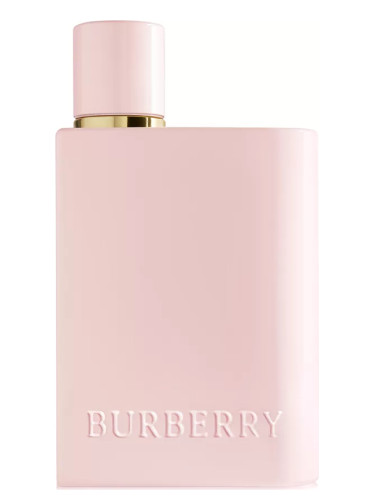Perfume smells different on skin due to the unique combination of body chemistry and temperature. In the world of fragrances, the chemistry between perfume and skin remains a fascinating mystery.
Have you ever wondered why a scent that smells fantastic in the bottle may not have the same allure once applied to your skin? It’s a phenomenon that has puzzled many perfume enthusiasts and scientists alike. The answer lies in the intricate interplay between body chemistry and temperature, which can subtly alter the fragrance and make it unique to each individual.
We will delve deeper into the reasons behind why perfume smells different on the skin and explore the fascinating science behind this olfactory phenomenon. So, let’s unravel the secrets and discover the captivating world of perfume and its intriguing relationship with the human body.
Factors That Influence Perfume Perception
Perfume can smell different when applied to the skin due to various factors that influence its perception. One such factor is body chemistry, which varies from person to person. PH levels play a significant role in how a perfume interacts with the skin, as they can alter the scent’s composition.
Additionally, the temperature of the skin can affect how the fragrance evaporates and develops over time. Different skin types and climates can impact how long the perfume lasts and how it reacts with the natural oils on the skin. It’s important to understand that these factors can cause a perfume to smell different on different individuals, highlighting the uniqueness of our body chemistry and how it interacts with fragrances.
So, the next time you wear perfume, remember that its scent can be influenced by your own skin and the environment around you.
Top Notes: The First Impression
Perfume can smell different on skin due to the various factors influencing its scent. The first impression, known as top notes, is crucial. Volatility and evaporation play a major role here. Different fragrances have different compositions that evaporate at different rates.
Citrus and floral scents, for example, are more volatile and evaporate quickly, leaving a refreshing and lively impression. On the other hand, heavier scents like musk or woody notes take longer to evaporate, resulting in a lingering and deeper aroma.
Skin chemistry also influences the way perfume reacts, as each person’s pH balance is unique. This can alter the scent and make it more personalized. Therefore, the way perfume smells on your skin is a multi-dimensional interplay between fragrance composition, volatility, evaporation, and individual body chemistry.
Understanding these factors helps us appreciate the complexity of perfume and the transformative power it holds.
Heart Notes: Unveiling The True Scent
Perfume smells differently on skin due to chemical reactions that occur between the fragrance and our body chemistry. These reactions happen in the heart notes, which unveil the true scent of the perfume. Floral and spicy scents are particularly susceptible to these changes.
When applied, the perfume’s molecules react with the natural oils and pH levels on our skin, altering the fragrance. This unique interaction can result in a variation of the initial scent. Depending on factors such as body heat and sweat, the perfume may evolve over time.
Therefore, it’s important to test a fragrance on your skin before buying to ensure it suits your individual body chemistry. By understanding the chemical reactions at play, we can better appreciate why perfume smells differently on different people.
:max_bytes(150000):strip_icc()/olga-serjantu-CaaJnESPYYo-unsplash-231d86eaf3b440a79797cbe7e87801cb.jpg)
Credit: www.byrdie.com
Base Notes: The Lingering Aroma
Perfume smelling different on skin can be attributed to the evaporation rate of base notes. These lingering aromas, such as woody and musky scents, tend to stick around longer. The variations in our individual body chemistry can also impact how a fragrance develops on the skin.
Factors such as pH levels, oiliness, and hydration can further alter the way perfume interacts with our bodies. It’s important to consider these factors when choosing a fragrance, as what smells fantastic on a friend might have a completely different effect on our own skin.
So, the next time you are in search of a signature scent, pay attention to the base notes and how they play with your body’s unique chemistry to find the perfect fragrance that truly captures your essence.
Diet And Lifestyle
Perfume smells different on the skin due to various factors. One such factor is diet and lifestyle choices. The consumption of spices can greatly impact the scent of a perfume on the skin. Spices, such as garlic or chili, can alter the body’s natural scent and interact with the fragrance.
Additionally, alcohol consumption can also influence how perfume smells on the skin. Alcohol is known to increase the evaporation rate of perfume, which can affect the overall fragrance. Therefore, it is important to consider your diet and lifestyle when choosing and wearing perfume, as these factors can significantly impact its scent on your skin.
Take into account your spice and alcohol consumption for a more accurate representation of the fragrance.
Skincare Products And Fragrance
Perfume tends to smell different on the skin due to how it interacts with skincare products. Moisturizers and lotions create a barrier on the skin that can alter the fragrance’s composition. Similarly, deodorants and antiperspirants have their own distinct scent that can mix with the perfume, resulting in a unique smell.
The ingredients in these skincare products and deodorants can react with the perfume’s molecules, changing its scent when it comes into contact with the skin. Each person’s body chemistry is also a factor, as it can affect how the perfume blends with the skin’s natural oils.
This is why the same perfume can smell differently on different individuals. Understanding these factors can help you choose the right skincare products and apply perfume in a way that enhances its scent on your skin.
Choosing The Right Fragrance
Perfume scents differ when applied to the skin due to factors such as body chemistry. It’s crucial to choose the right fragrance that complements your body’s unique scent. Keep in mind seasonal considerations as well. The scent of perfume can react differently in hot and cold weather.
To find the perfect fragrance, consider your skin type, lifestyle, and personal preferences. Experiment with different scents to see how they interact with your body chemistry. A fragrance that smells amazing on someone else may not have the same effect on you.
Ultimately, finding the right perfume is a matter of trial and error. Embrace the process and enjoy exploring the diverse range of scents that suit you best.
Applying Perfume For Optimal Effect
Perfume can smell different on your skin due to various factors. To apply perfume for optimal effect, try the pulse points technique. These points, such as wrists, neck, and behind the ears, radiate heat, enhancing the fragrance. Additionally, layering fragrances can create a unique scent that suits your personal style.
Experiment with combining different perfumes to find the perfect blend. By applying perfume to these strategic areas, you can ensure it lasts longer and remains noticeable throughout the day. The individual chemistry of your skin also plays a role in how a perfume smells.
So, what may smell amazing on someone else might not have the same effect on you. Embrace the uniqueness and experiment with different fragrances to find the perfect scent for you.
Frequently Asked Questions
Why Does My Perfume Smell Different On Me Sometimes?
Perfume can smell different on you due to factors like body chemistry and skin type.
Does Perfume Change Smell On Skin?
Perfume can change its scent when applied to the skin due to individual body chemistry.
Does Perfume Smell Different On Skin Than Paper?
Perfume smells different on skin than on paper due to individual body chemistry.
Does Perfume Smell Better On Skin?
Perfume can smell better on the skin due to its chemical reaction with personal body chemistry.
Conclusion
It is fascinating to explore why perfumes smell different on our skin. Our body chemistry, including factors like pH levels, natural oils, and individual skin types, interacts with the fragrance molecules, altering their scent. This uniqueness is what makes perfumes a personal experience, with each person wearing it in their own special way.
Understanding our body’s influence on fragrance can help us choose the perfect perfume that complements our skin and enhances our personality. So, the next time you perceive a different smell from your perfume, embrace it as a beautiful transformation. Embrace the fact that you are the missing puzzle piece, completing the fragrance puzzle.
Remember, perfumes are not just a fragrance but a sensory journey that connects us to our memories, emotions, and the world around us. So, take a whiff, let it transport you, and enjoy the fascinating dance between your skin and the perfume floating delicately on it.













